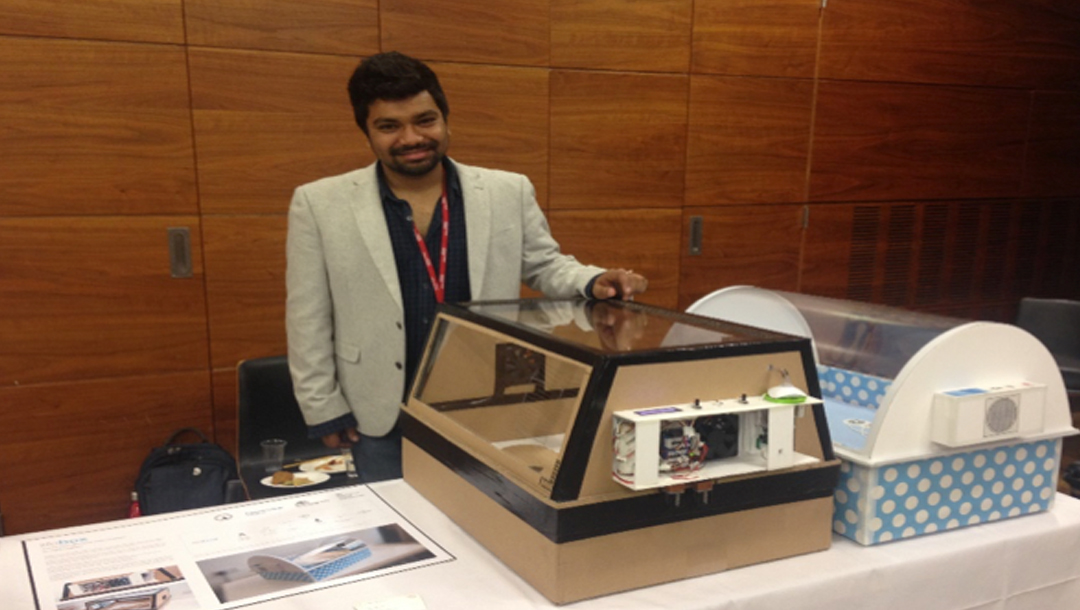According to DotAsia’s Youth Mobility Index (YMI.Asia), though India ranks the 15th among 20 localities, it has an favourable factors such as start-up capital availability, students’ proficiency in English and internet education, showing that the young generation has great potential in employment on international levels. Like Malav Sanghavi, who studied in Innovation Design Engineering course at the Royal College of Art and completed his masters at Imperial College of London after graduating in product design at the National Institute of Design in India, has invented a live saving incubator, LifeCradle and was one of winners at the Vatican Youth Symposium in 2016. He was also be chosen as Forbes 30 Under 30 Europe and India 2017.
“All our dreams can come true, if we have the courage to pursue them.”
Malav founded a company Creoto Techologies Limited aims to contribute to achieving SDG 3: Ensure healthy lives and promote well-being for all, at all ages and SDG 9: Build resilient infrastructure, promote inclusive and sustainable industrialization and foster innovation.
His first design, LifeCradle – is a low-cost, battery operated cardboard baby incubator which provides basic facilities (like warmth, clean environment, and monitoring) for a child’s survival in the critical first few days of its life. Apart from providing neonatal care, LifeCradle also strives to raise awareness regarding the need for adequate maternity care throughout pregnancy to ensure a healthy and safe childbirth.
As Professor Jeffrey Sachs, Director of the UN’s Sustainable Development Solutions praised Malav’s design of LifeCradle as “one of the best ways to save lives” in the Vatican Youth Symposium in 2016, Malav hopes his design will go on help save babies lives in India. In fact, India has the highest number of preterm births – and other developing nations. “Innovation is not exclusively about making profits or disrupting the existing market! It should also aim to impact on society by bringing change.” Malav said.
LifeCradle is currently at the product development stage and is expected to reach the market in early 2018. He targets to provide incubators at the Sub-Centers (lowermost public healthcare units) in India starting with 5 states that do not have formal health care facilities. An expansion to most states in India is expected to take place by 2020 with an entry into the African continent by 2022.
For the full report on Youth Mobility Index, visit http://ymi.asia
Source of Information:
Photo Credit: Crowdfund Campus Sandpit











